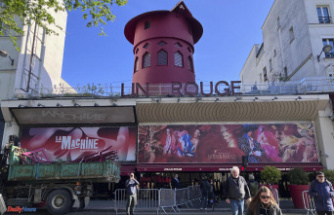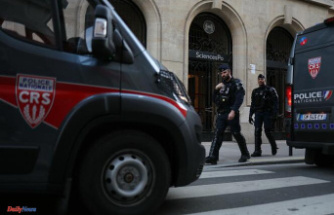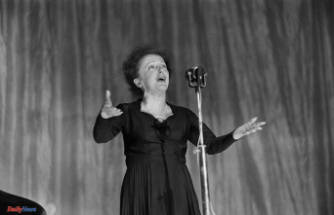This section was inaugurated with the first season of Cardo. With its second installment, the series by Ana Rujas and Claudia Costafreda once again deserves the position of best series of the week. And one of the best of the year. Cardo still doesn't look like any other series and that in itself is great. But it is that, in addition, that of Rujas and Costafreda has many more virtues apart from originality.
Selling ourselves to María, Cardo's unsympathetic protagonist, was extremely difficult. More than a lost woman, she is a wrong woman. Victim? I don't believe it. Sick? Who knows. What is clear is that she is not someone you want to have around. But yes in front, inside the screen. That safety distance proposed by the Atresplayer Premium series is essential to understand and enjoy it. Cardo lives in two places at the same time: she is full of truth (I hate this expression ... and I can't find a better one) but she knows a narrative artifact. Its ugly costumbrismo is openly aggressive but its nightmarish atmosphere keeps us away from the parameters of reality at all times. Thistle is a nightmare, an itch, a scab that you don't pick off over and over again. Thistle is a miracle.
Every time Maria returns to the starting square, in a loop that almost looks like the dramatic-powder version of Russian Doll, that square is a little further back. The second season of Cardo begins with her in what has almost become a commonplace of intense dramas: Maria has spent time in prison and it's time to return to the real world. But the real world, María's, Cardo's, is much more dangerous than prison routine, where one only has to sit and wait for time to pass. In the real world, time is an animal that chases you.
Sponsored by Javier Calvo and Javier Ambrossi, Cardo is a series that is unlike anything else. Also one that no one is trying to resemble because comparisons would be hateful. The work of Ana Rujas and Claudia Costafreda dares with everything because they dare with everything. In their second season, now on the air, they play with a religiosity that in the first appeared only as a folkloric concession, an extravagance that Rujas and Costafreda indulged in and that for many took a little out of María's story.
Now that pathetic and desperate mysticism is part of the "harder yet" to which the series voluntarily submits. Also the formal experimentation that was already present from its beginning. With the appearance of the archangel, the third episode of the new season, Cardo presents an oppressive universe in black and white that works as a gloomy reverse of the sparkling Arde Madrid and almost asks you to take your eyes off the screen, warning that what comes next it will be worse. Dont do it. You keep looking. Cardo is a black hole to which one surrenders, Cardo is the attraction of the abyss as never told by a Spanish series, Cardo is a painful epiphany. María could not be more wrong, Ana and Claudia could not be more right, more talented and the ovaries better placed.
According to the criteria of The Trust Project












